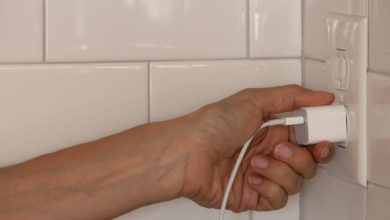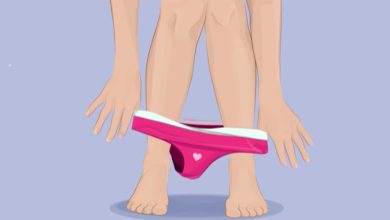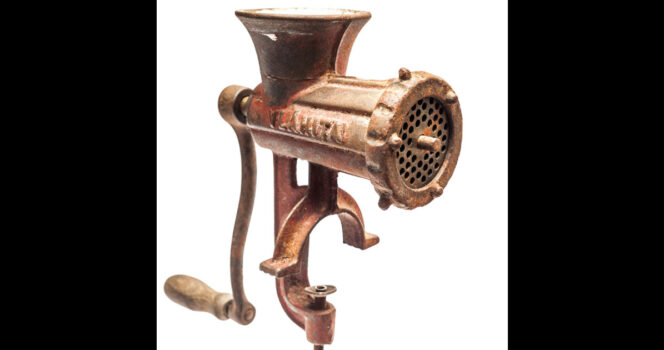Why using a fan at night can disrupt your sleep
Overly slumbered people tend to be the envy of sleep deprived individuals who can only dream about a good night’s sleep.
If you’re looking to feel rejuvenated in the morning so you can slay your day, there’s a very simple fix that can help you get a deep, restorative sleep.
Keep reading to learn the trick on becoming a snooze button-punching person!
For some people sleep each day is the end goal, while others feel it’s a necessary evil until the next day arrives.
But sleep is something our bodies need to thrive and it’s not just about how many hours you spend in bed, it’s also the quality of your sleep and how effective your down time is in rejuvenating your body and mind.
READ MORE:
- Dad whose body is completely covered in tattoos undergoes transformation for the sake of his young daughter
- Young girl performs ‘forbidden’ Dolly Parton song on ‘The Voice,’ leaves judges speechless

Experts suggest the average adult needs between seven to nine hours of sleep each day for your brain to be sharp and your mood to be sunny.
And, a lack of quality sleep contributes to long-term health issues such as cardiovascular disease, diabetes, and depression. Sleep deprivation also weakens your immune system, making you more susceptible to infections.
Balance
Sleep quality depends on a variety of factors, but one often overlooked aspect is room temperature. The temperature of your environment can significantly affect how well you sleep and your ability to stay asleep through the night.
You need to find the right balance of warm and cold so your body can rest instead of having to work through the night in maintaining a comfortable temperature.
When it’s too hot, you’ll have trouble falling asleep and staying asleep as your body struggles to lower its core temperature.
And, when it’s too cold your muscles will contract, making it harder for you to relax into a deep sleep.

Furthermore, when you are shivering or feeling cold in bed, your sleep will be fragmented as your body works harder to stay warm.
Science and sleep temperature
Experts say that the ideal room temperature for sleep is typically between 60 to 67°F (15 to 19°C) for most people.
Your body’s core temperature naturally drops as you prepare to sleep and rises again when it’s time to wake up. When your environment’s temperature aligns with your body’s natural cooling, it creates optimal conditions for deep, restorative sleep.
During the different stages of sleep, particularly in deep sleep and REM sleep, your body loses its ability to regulate temperature as effectively. This is why external temperatures – whether too hot or too cold – can disrupt these critical stages of rest.
And melatonin – the hormone responsible for making you feel sleepy – is also affected by temperature. A cooler environment encourages melatonin production, signaling to your body that it’s time to rest. This is why it’s easier to fall asleep when the room is cooler than when it’s too warm.
Tips to sleep better
Creating the perfect sleep environment involves more than just setting the thermostat. Here are some ways to optimize your bedroom temperature for a good night’s sleep:

- Bedding and blankets: Breathable materials – like cotton or linen – allows air to circulate, preventing you from overheating during the night. Heavy or synthetic materials like polyester can trap heat and moisture, making it harder to regulate your body temperature.
- Invest in a quality mattress: Some mattresses retain heat, which can disrupt sleep. Memory foam mattresses, for example, are notorious for trapping heat, though newer models now include cooling gel layers. Consider investing in a mattress that promotes airflow and stays cool throughout the night.
- Wear comfortable, lightweight sleepwear: The clothes you wear to bed can also affect your body temperature. Breathable fabrics like cotton or moisture-wicking materials are best for maintaining a comfortable sleep temperature. Avoid heavy, insulating PJs unless the room is unusually cold.
- Avoid using fans: One of the primary reasons people use fans is to regulate room temperature, especially during warmer months. But all they do us move air around the room and fans don’t lower the room temperature. On particularly hot nights, a fan may not be sufficient to cool your body to a comfortable temperature, causing you to overheat and wake up sweating. Alternatively, if the room is already cool, having a fan blow air directly onto you can lead to feeling too cold, causing you to wake up chilled in the middle of the night.
If you’re one of those people who are calmed by the swinging sounds of a fan, here are some alternatives that will not impact your room’s temperature.
- White noise machine: These devices produce soothing sounds, such as rain, wind, or ocean waves, creating a calm environment that promotes better sleep. If you have a voice-controlled virtual assistant at home, ask it to play you timed sleep sounds.
- Humidifier or purifier: If dryness is a concern, using a humidifier can add moisture back into the air, preventing the dehydration that fans can cause. Both devices are quieter than most fans and can contribute to a more restful sleep environment.
Sleep is one of the most vital functions of the human body, allowing it to recover, repair, and rejuvenate both mentally and physically. It’s important to prioritize sleep so you can wake up feeling refreshed and recharged!
What tricks do you have to help you sleep through the night? Please share your thoughts with us and then share this story so we can hear from others!












